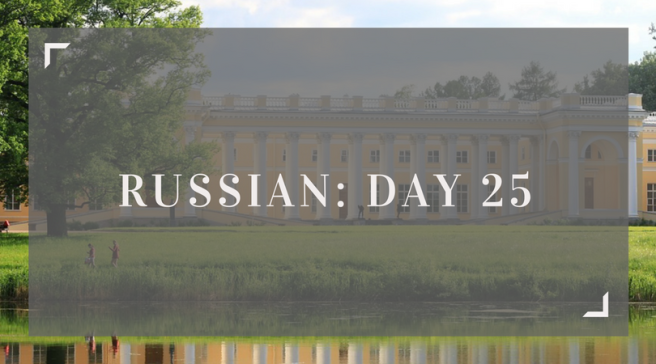
I had no plans to watch Russian dramas this month. I didn’t think my language levels were anywhere near good enough to make watching a drama helpful, so I was going to stick with kid’s shows. After watching a couple kid’s shows I realized that the language really wasn’t much easier than what I would probably get out of a drama – and at least the drama would have real people and not cartoons.
Luckily for me, quite a few Russian dramas are available on Youtube, courtesy of StarMediaEN. Star Media is a TV content producer in Russia and while I have no clue why they offer their programs for free to English speakers, I’m grateful.
I decided to go with Minus One, for no particular reason. Turns out, it was everything I could hope for and more.
Minus One centers on Lena and Vasia, a young couple who meet cute in a stuck elevator at the beginning of the first episode (a classic romcom set up!). They get married, have a family, and seemingly have reached their happily ever after. Vasia is a photographer with dreams of opening up his own kindergarten. Lena is a stay-at-home mom who takes care of their two adorable kids. But what is a drama without tension? Lena is frustrated with Vasia’s dreamer tendencies, and wants him to focus on the practicalities. Vasia doesn’t feel like Lena appreciates him and supports his dream. They find themselves flirting with other people. And THEN, after a fight, they find themselves living in mirror realities where the other is absent, only able to communicate through their living room TV. Do they move on to their other love interests? Or will they find their way back to each other?
It is absurd and soapy and emotional and I love it. It reminds me of Asian dramas in its level of melodrama. But it’s only 4 episodes! That’s basically a mini-series in the US. Not hard to get through at all.
It was also a surprising boost to my Russian studies. First of all, although it is clearly above my language level, it was fun to pick up the words I did know, which came up a lot. Words like “please”; “very”; “hello/hi”; “I know”; “I don’t know”; “children”; and “beautiful.” There were also whole sentences I understood, which delighted me (granted, it was sentences like the little girl saying “I want cake.”).
Second, I also picked up on two new words that came up frequently. They were так (so, well, then, just so, etc.) and давай (let’s, come on). I don’t think I could have appreciated how often these words are used without watching Russian TV. That’s a huge benefit of consuming a culture’s media – you get to hear how they actually talk, and what words they use. It’s not something that comes up this early in most language teaching resources (although так has come up in Assimil, I had no sense it was such a commonly used word until I watched Minus One).
The other great thing about dramas is that it gives you a better sense of Russian daily life. Not perhaps a realistic insight (just as Friends does not give you a realistic view of what it’s like to live in NYC), but some thought into how Russians portray themselves in their media. The biggest thing that surprised me was the Russian male characters: Vasia and Artyom . That’s because most of my knowledge of Russian men comes from this Salon article, which portrays Russian men as chauvanistic (but sexy) alpha males. That’s not Vasia or Artyom at all. Vasia is an affable everyman, who in the American version could be played by Paul Rudd. He clearly loves his wife, takes his children to the park, and his biggest dream is opening a kindergarten. One of Vasia and Lena’s big fights is over his inability to do anything about the washing machine breaking down (he is not a handy guy). Artyom is Lena’s would-be suitor, a single father who she meets in the park. His seduction attempts include offering to deliver and install a dishwasher. He’s a handsome, urbane businessman who exudes confidence, but it’s not like he’s about to beat his chest or engage in fisticuffs with Vasia (I mean, not that he can because Vasia quickly disappears into a mirror dimension. But still). While I’m sure Russian men are as varied as American men (everywhere along the spectrum from frat bros to the guys on The Big Bang Theory), it is interesting to see how male heroes (and the female heroines!) are portrayed in Russian dramas. Honestly, they would not be out of place on the typical American TV sitcom. I have exactly one data point so far, which doesn’t tell me all that much on how men and women are portrayed in dramas in general though. Guess I will just have to go watch more dramas…
But I’m very glad I took a chance and watched Minus One. It is a great starter drama (again, only 4 episodes! of delightful soapiness!).
